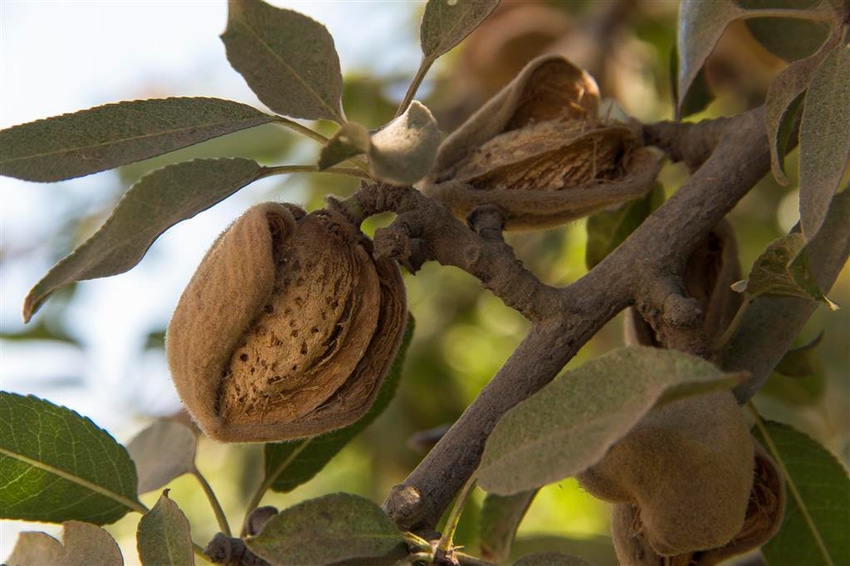October 27, 2015

California groundwater recharge has the focused attention of two agricultural organizations as forecasters are calling for a wet winter.
The Almond Board of California (ABC) and Sustainable Conservation will explore ways to use almond orchards to recharge aquifers depleted by years of drought and irrigation pumping. Sustainable Conservation is a nonprofit organization that unites people to steward California's resources in ways that make economic sense.
The partnership launches just as California is entering a much-anticipated El Niño year, which could bring an exceptionally wet winter. Groundwater recharge returns water to underground aquifers, collectively California's largest water storage system, through managed flooding with seasonal floodwaters.
The goal is to use almond farmland to capture storm water that is both beneficial to aquifers and almond orchards.
Sustainable Conservation has been partnering with growers on field trials to accelerate groundwater recharge on agricultural lands in the San Joaquin Valley. For more than 20 years, the Almond Board has funded several research projects to understand water movement in the soil, and preserve and improve groundwater quality.
“Leveraging almond acreage for groundwater recharge has the potential to benefit the entire Central Valley,” said Ashley Boren, executive director of Sustainable Conservation.
“Once a farmer utilizes his or her land to return water to the aquifer, it serves the greater community, not just that farmer,” Boren continued. “Maximizing the capture of excess flood flows during wet years replenishes groundwater supplies for use during dry years, while also reducing downstream flood risk.”
While the ongoing drought continues to impact everyone across California, the almond industry has focused decades of investment in research and improved production practices to protect California's valuable natural resources.
“Groundwater has always been a vital resource for all Californians, and has played a critical role in maintaining California's economic and environmental sustainability through the years,” said Richard Waycott, president and chief executive officer of the Almond Board. “The Almond Board will identify farmers who are already using or are interested in trying groundwater recharge to join the Sustainable Conservation program.”
Waycott says the groundwater recharge efforts are part of a large ABC-funded research by the University of California to understand the orchard health impact of applying excess water to almond trees.”
Almond Board funds research
Through nearly 100 innovative ABC-funded research projects since 1994, almond growers have incorporated state-of-the-art, research-proven irrigation practices that reduced the amount of water needed to grow almonds by 33 percent.
Sustainable Conservation will compile information from almond growers who have already been capturing excess floodwater, and are using it for managed groundwater recharge, to document the methods, timing and duration that have not caused negative crop impacts.
ABC will also look for almond growers interested in trying recharge to include in ongoing Sustainable Conservation trials. Growers interested in participating should contact Joseph Choperena of Sustainable Conservation at (415) 977-0380, extension 320 or [email protected].
A team of ABC-funded UC Davis researchers will track soil moisture, water movement, tree and root health in almond orchards and measure how they vary with local soil and weather conditions. The trials will take place in Merced, Stanislaus and Fresno counties.
The study will determine where groundwater recharge can take place without negatively impacting orchard health and crop yields. Findings will assist in identifying the orchard practices and conditions that are most suited for groundwater recharge, and which orchards can be part of a sustainable solution to periodic droughts and groundwater overdraft.
Sustainable Conservation and a team of UC researchers and other specialists will model and determine how floodwater can be best applied on almond orchards to protect and improve groundwater quality.
Land IQ, a cutting-edge agricultural technology firm, will build on ongoing research by the California Water Foundation to identify where almond orchards and associated infrastructure requirements overlay soils and geology suitable for groundwater recharge. Findings from this activity will be shared with UC Davis and Sustainable Conservation to complement their research.
As the research progresses, Sustainable Conservation and UC Davis will present findings to the public, groundwater management agencies, industry experts and farmers to help drive the development of best practices to promote groundwater sustainability in almond orchards throughout California's Central Valley.
Established in 1950 and based in Modesto, California, the Almond Board of California is a non-profit organization that administers a grower-enacted Federal Marketing Order under the supervision of the United States Department of Agriculture.
Sustainable Conservation helps California thrive by uniting people to solve challenges facing land, air and water. Since 1993, it has brought together business, landowners and government to steward the resources that we all depend on in ways that make economic sense.
For the latest on western agriculture, please check out Western Farm Press Daily and receive the latest news right to your inbox.
About the Author(s)
You May Also Like




